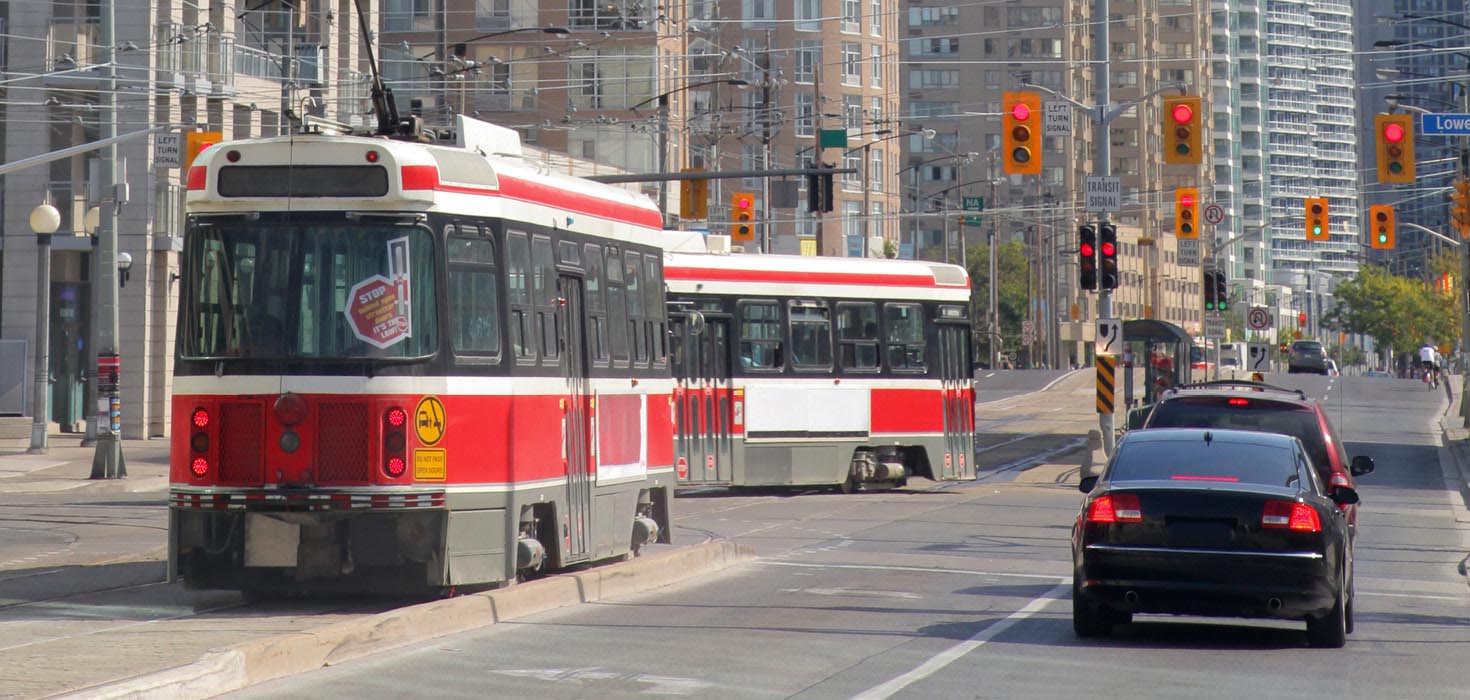Getting around the city can be a political act.
It’s election season, so getting around is even more political than usual, with commuters of all kinds being wooed with treats. Some commuters more than others, that is.
Last month the Ford government announced licence plate renewal fees are being scrapped. That’s an awful lot of money out of the provincial coffers related to infrastructure that takes a lot of wear and tear from motorists and costs an awful lot to keep in a state of good repair. Remember, the rebuilding of a small section of the Gardiner Expressway alone eats up $2 billion, or 38 per cent, of the city of Toronto’s 2021-2030 capital budget for transportation. Can we complain about potholes with a plate rebate in our hands?
It’s bold to cut this revenue while pushing through the quite-controversial expansion of Highway 413 into the Greenbelt as well as the Bradford Bypass, massive road building that will cost billions. The Ford government offered more treats when it announced it would cancel tolls on Highways 412 and 418. How will that revenue be replaced?
If you ride the TTC or another Ontario transit agency and watched the fares go up and up over the years, you might ask, where’s my treat? If tolls are removed from the highway and plates, why can’t the tolls on riding the bus, streetcar, or subway be removed?
This week the Ford government announced it would be eliminating “double fares” for riders on trips that connect from GO Transit to local transit services across the Greater Golden Horseshoe, but not including the TTC. It’s a very conspicuous omission from a government that has often treated Toronto conspicuously different than it treats other municipalities.
On the face of it, this is a good start in erasing some of the arbitrary borders across our region. While everyone in the Golden Horseshoe lives in distinct places that are self-governed, when it comes to transportation, we’re all one metropolis, living, working and going to school across those borders, part of the same social and economic area. Transportation should be fluid. If you’re in a car, save for the welcome sign at the city limits, you barely notice when you cross from one municipality to another. On transit, though, you’re much more likely to notice because another fare is required.
Many transit systems around the world have zoned fares. The London Underground is one such system, with six zones that radiate from the city centre in concentric rings. Travelling within the dense first or second zone is a base fare. The more zones travelled, the higher the fare. GO transit works like this across the region. Fare pricing everywhere depends on how much the ride is subsidized, though.
Like the breaks for drivers and highway users, eliminating the second fare on local transit will cost something. The province will have to subsidize the fare for the local transit agencies. All fine, and how it works around the world, but this kind of thing gets buried in populist announcements, especially when the head of that populist government, Doug Ford, is fond of saying there is only one taxpayer.
Somebody will have to pay for all the transit rides, the untolled highways, and the lack of revenue from plate renewal will have to be made up somewhere or result in cuts. An agency like the TTC has some of the lowest fare subsidies in North America, and increasing these local transit subsidies could be a good thing, but we need to be more honest about who’s getting subsidized, and who isn’t.
If somebody knocks on your door asking for your vote while bearing treats this spring, ask them how the treats are going to be paid for. It’s important to also remember that the previous Liberal government had implemented a $1.50 discount program for riders transferring between the TTC and Metrolinx-operated transit like GO or the UP Express. The Ford government let that expire but, lo, come election year this kind of thing is a good idea after all.
The Toronto Region Board of Trade issued a statement Wednesday saying dropping double fares was a significant step towards an integrated, region-wide transit system, but that excluding the TTC was a mistake and will have economic consequences. “We are in a once-in-a-generation race for talent,” said board CEO Jan De Silva in the statement. “Waiting to integrate fares for Toronto locks out talent, especially lower-income earners.”
The board has been a long-time advocate for fare integration and a critic of how fragmented the regional transportation system is. Its 2020 report called “Erasing the Invisible Line: Integrating the Toronto Region’s Transit Networks” decried “punitive double fares and poorly coordinated routes” that made for longer rides and unnecessary crowding.
Despite all the lines on the map, we’re all part of one giant megalopolis, criss-crossing it for all kinds of reasons. Making it easy for everyone to do that shouldn’t be so political.
This story was originally published in the Toronto Star on March 5, 2022
The Toronto Region Board of Trade is one of the largest and most influential business chambers in North America and is a catalyst for the region’s economic agenda. We pursue policy change to drive the growth and competitiveness of the Toronto region and facilitate market opportunities with programs, partnerships and connections to help our members succeed – domestically and internationally.
Media Contact
Andrew Perez, Media Relations Manager
647-290-2171
media@bot.com
